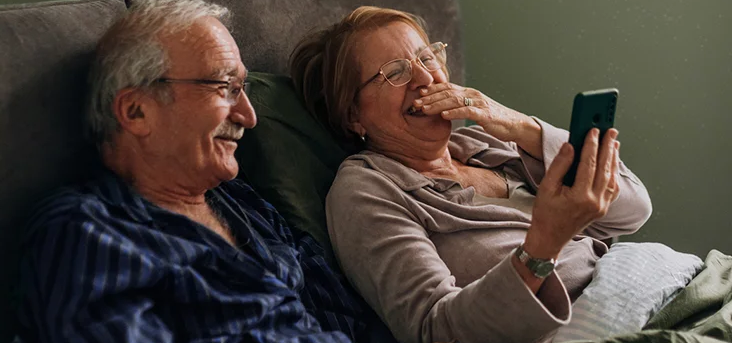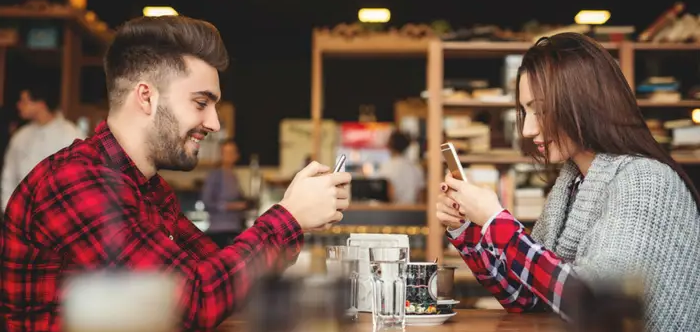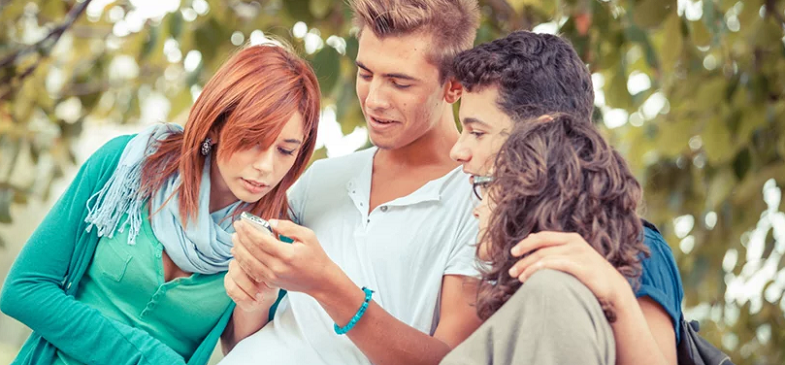Social media has become a ubiquitous part of our daily lives, with billions of people using platforms such as Facebook, Instagram, and Twitter to connect with others. While social media has provided many benefits in terms of connecting individuals and improving communication, it has also had a significant impact on relationships and the way we communicate with one another.
The impact of social media on relationships and communication is a complex and multi-faceted issue, encompassing both positive and negative effects. From enhancing long-distance relationships to fostering feelings of inadequacy, it is important to understand both the benefits and drawbacks of social media in order to use it in a healthy and mindful manner.
Social Media and Its Prevalence in Our Daily Lives
Social media refers to a group of digital technologies and platforms that enable individuals to share content, information, and connect with others through the internet. Some of the most popular social media platforms include Facebook, Instagram, Twitter, LinkedIn, and Snapchat.
Social media has become a ubiquitous aspect of our daily lives, with billions of people worldwide using these platforms to stay connected with friends and family, share updates and experiences, and engage in discussions and debates. The widespread use of social media has revolutionized the way we communicate, interact, and consume information.
In many ways, it has become an integral part of our personal and professional lives, influencing our opinions, attitudes, and decisions. The prevalence of social media in our daily lives has significant implications for both individuals and society as a whole, making it a topic of ongoing interest and debate.

Positive Impacts of Social Media on Relationships and Communication
Overall, social media has had a significant impact on relationships and communication, providing individuals with new and innovative ways to connect with others and share information. Social media has had several positive impacts on relationships and communication.
Enhancing Long-Distance Relationships
Social media has had a significant impact on long-distance relationships by making it easier for people to stay connected with loved ones who live far away. Through platforms such as Skype, WhatsApp, and Facebook, individuals can easily communicate with one another, share updates and experiences, and stay connected despite physical distance.
This has greatly improved the ability of people in long-distance relationships to maintain a sense of closeness and connectedness, allowing them to feel less isolated and lonely. Social media has made it possible for people to create and share memories, regardless of physical distance, by sharing photos and videos of special moments and milestones. In this way, social media has helped to strengthen and enhance long-distance relationships, making them more resilient and fulfilling.
Improving Work Relationships
Social media has also had a positive impact on work relationships by making it easier for people to collaborate and communicate more effectively with colleagues, clients, and partners. With platforms such as Slack, Asana, and Microsoft Teams, individuals can easily communicate and share information with one another, reducing the need for face-to-face meetings and increasing efficiency.
Social media has also made it possible for people to connect with others who have similar professional interests and goals, building supportive communities and making new connections. Social media has allowed individuals to stay up-to-date with the latest industry news and trends, providing valuable insights and information that can improve their work performance and relationships with others. In this way, social media has played a key role in enhancing work relationships, making them more productive and successful.

Connecting People with Similar Interests
Social media has also had a positive impact on relationships by providing a space for people to connect with others who share similar interests and passions. Whether it be through online communities, forums, or interest-based groups, social media has allowed individuals to find and connect with like-minded people from all over the world.
This has created a sense of community and belonging for many individuals, who may have otherwise felt isolated or disconnected from others. Social media has provided individuals with a platform to express their interests and hobbies, and to engage in meaningful conversations and debates with others who share their passions. This has helped to foster a sense of connection and belonging, as well as to promote personal growth and self-expression.
Overall, social media has been a powerful tool for connecting people with similar interests, building supportive communities, and enhancing relationships.
Breaking Down Barriers
Social media has played a significant role in breaking down geographical and cultural barriers, allowing people from all over the world to connect and engage with one another. With the ability to connect with individuals from different backgrounds, cultures, and countries, social media has helped to create a more connected and inclusive world.
This has had a profound impact on relationships, as individuals are able to connect with people from diverse cultures and backgrounds, promoting greater understanding, empathy, and respect for others. Social media has helped to reduce language barriers by providing automatic translation services, allowing people to communicate with others who speak different languages.
This has opened up new opportunities for cultural exchange and global collaboration, and has helped to break down barriers that have historically divided people. By breaking down geographical and cultural barriers, social media has had a positive impact on relationships and communication, making the world a smaller, more connected, and more inclusive place.

Facilitating Social Movements
Social media has played a vital role in facilitating social movements by providing a platform for people to come together and advocate for change. Whether it be through hashtags, online campaigns, or virtual protests, social media has given individuals a powerful tool to amplify their voices and bring attention to important causes.
This has created a sense of community and solidarity among individuals who may have otherwise felt isolated or powerless in their efforts to bring about change. Social media has provided a space for people to educate themselves and others on social and political issues, and to organize and participate in grassroots campaigns.
By providing a platform for people to come together and advocate for change, social media has helped to spur the growth of social movements and to bring about positive change in communities and societies. In this way, social media has had a positive impact on relationships and communication, by facilitating social movements and empowering individuals to make a difference.
Negative Impacts of Social Media on Relationships and Communication
The prevalence of social media in our daily lives has had a significant impact on relationships and communication. While social media has brought people closer together in many ways, it has also created new challenges and difficulties. From addiction to negativity, social media has been linked to a range of negative outcomes that can impact individuals, communities, and society as a whole. These negative impacts are important to understand and address, in order to use social media in a responsible and mindful way.
Addiction
One of the negative impacts of social media on relationships and communication is addiction. Social media can be addictive, leading individuals to spend excessive amounts of time online and neglect their relationships with family and friends. This can lead to decreased face-to-face interaction and a lack of meaningful communication, as well as a reduced ability to build and maintain strong relationships.
Social media addiction can have a negative impact on mental health, as individuals become addicted to the constant stimulation and validation provided by social media. This can lead to increased feelings of anxiety, depression, and isolation, as well as decreased overall well-being. By becoming addicted to social media, individuals risk damaging their relationships and communication, and it is important to be mindful of the amount of time spent online.
Negativity
Another negative impact of social media on relationships and communication is negativity. Social media can be a source of negativity, promoting hate speech, cyberbullying, and other forms of online harassment. This type of online behavior can have a damaging impact on individuals and communities, leading to increased feelings of isolation, anxiety, and depression.
Negative interactions on social media can also have a ripple effect, spreading negativity and affecting larger social networks. This can result in decreased overall well-being and reduced trust in online interactions. Social media negativity can also have a negative impact on face-to-face relationships and communication, as individuals may bring the negativity from their online interactions into their real-life relationships.
By promoting negativity, social media can undermine relationships and communication, and it is important for individuals to use it in a responsible and respectful way.
Mental Health
The constant stimulation and pressure to present a perfect image on social media can lead to increased feelings of anxiety and depression, as well as decreased overall well-being.
Social media can also contribute to feelings of isolation and loneliness, as individuals compare their own lives to the idealized versions of others presented on social media. This can lead to decreased self-esteem and a negative self-image, as well as a decreased ability to form and maintain meaningful relationships.

Shallow Relationships
While social media can connect people with similar interests and bring people closer together, it can also lead to the formation of shallow, surface-level relationships. This is because social media interactions can be superficial, lacking the depth and emotional connection that is present in face-to-face relationships.
Social media can also lead to a decreased ability to form deep, meaningful relationships, as individuals may rely on virtual interactions instead of face-to-face communication. This can result in decreased empathy and emotional intelligence, as well as a decreased ability to form strong, supportive relationships. By promoting shallow relationships, social media can undermine the quality of relationships and communication, and it is important for individuals to use it in a responsible and mindful way.
Lack of Emotional and Social Skills
Social media interactions can be impersonal, lacking the nonverbal cues and emotional expressions that are present in face-to-face communication. This can lead to decreased empathy and emotional intelligence, as well as a decreased ability to understand and respond to the emotional needs of others.
Social media can also promote a lack of social skills, as individuals may rely on virtual interactions instead of face-to-face communication. This can result in decreased ability to form strong, meaningful relationships, as well as decreased ability to navigate complex social situations. By promoting a lack of emotional and social skills, social media can undermine relationships and communication, and it is important for individuals to use it in a responsible and mindful way, while also maintaining face-to-face interactions and connections.
False Perception
The curated and idealized versions of individuals and their lives presented on social media can lead to false perceptions and comparisons. This can result in decreased self-esteem and a negative self-image, as well as feelings of inadequacy and dissatisfaction with one’s own life. Social media can also promote false perceptions of others, as individuals may only see a curated version of someone’s life, leading to misunderstandings and miscommunications.
This can result in damaged relationships and decreased trust and empathy, as individuals may become disillusioned with their perceived reality. By promoting false perceptions, social media can undermine relationships and communication, and it is important for individuals to be mindful of the limitations and potential biases of the information presented on social media.
Decreased Privacy
Social media platforms collect and store vast amounts of personal information, which can lead to decreased privacy and security. This can result in the unauthorized sharing of personal information, leading to potential embarrassment, shame, or harm to individuals or their relationships.
Social media can also increase the likelihood of online harassment, bullying, and other forms of online abuse, which can have a significant impact on mental health and well-being. This can result in decreased trust and decreased comfort in forming and maintaining relationships, as well as decreased ability to communicate effectively and authentically.
By decreasing privacy, social media can have a negative impact on relationships and communication, and it is important for individuals to be mindful of the privacy settings and security measures available on social media platforms, and to use them to protect their personal information and relationships.

